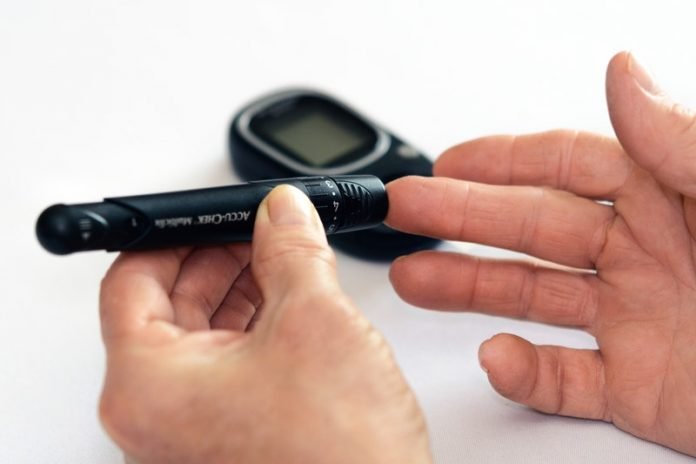
In a new study, researchers found that reducing a specific protein in the fat cells may help prevents type 2 diabetes and may even reverse the disease.
They also found that levels of the protein, called CD248, are higher in the fat cells of people with diabetes.
But when obesity-associated diabetes was reversed through weight loss, CD248 levels decreased to normal range.
The findings may hold promise for the development of a new and safe treatment for type 2 diabetes.
The research was done by scientists from the University of British Columbia and Sweden’s Karolinska Institute.
Type 2 diabetes is a chronic inflammatory condition that affects how the body metabolizes sugar.
In the disease, the body either resists the effects of insulin or doesn’t produce enough insulin to maintain normal blood sugar levels.
Common risk factors include obesity, smoking and a lack of physical activity.
Complications of Type 2 diabetes include heart and blood vessel disease, stroke, kidney damage, eye disease, slow wound healing, a higher risk of infections and some types of cancer.
Currently, more than 60 million adults in North America and Europe are diagnosed with pre-diabetes, and the number of people with Type 2 diabetes is staggering.
And as the incidence of obesity increases, more effective treatments for type 2 diabetes are urgently needed.
In the study, the team used human genetic approaches to study fat biopsies of patients who were thin, obese, diabetic and not diabetic.
They found that the levels of CD248 in human fat are strongly associated with clinical measures of type 2 diabetes risk.
To gain a better understanding of how CD248 works, the researchers used genetically modified mice that lack CD248 only in the fat cells.
They found that the lack of this protein in those cells protected the animals from developing Type 2 diabetes.
The team believes that the CD248 protein levels in the fat might provide a better marker than current measures of how sensitive a person is to insulin.
The marker may be used to better predict those who are at risk of developing type 2 diabetes and to measure the effectiveness of treatments.
In addition, modifying the amount or function of CD248 in fat cells may be a promising new treatment strategy for type 2 diabetes.
One author of the study is Dr. Edward Conway, a professor in the faculty of medicine at UBC.
The study is published in EBioMedicine, a journal of The Lancet.
Copyright © 2019 Knowridge Science Report. All rights reserved.



